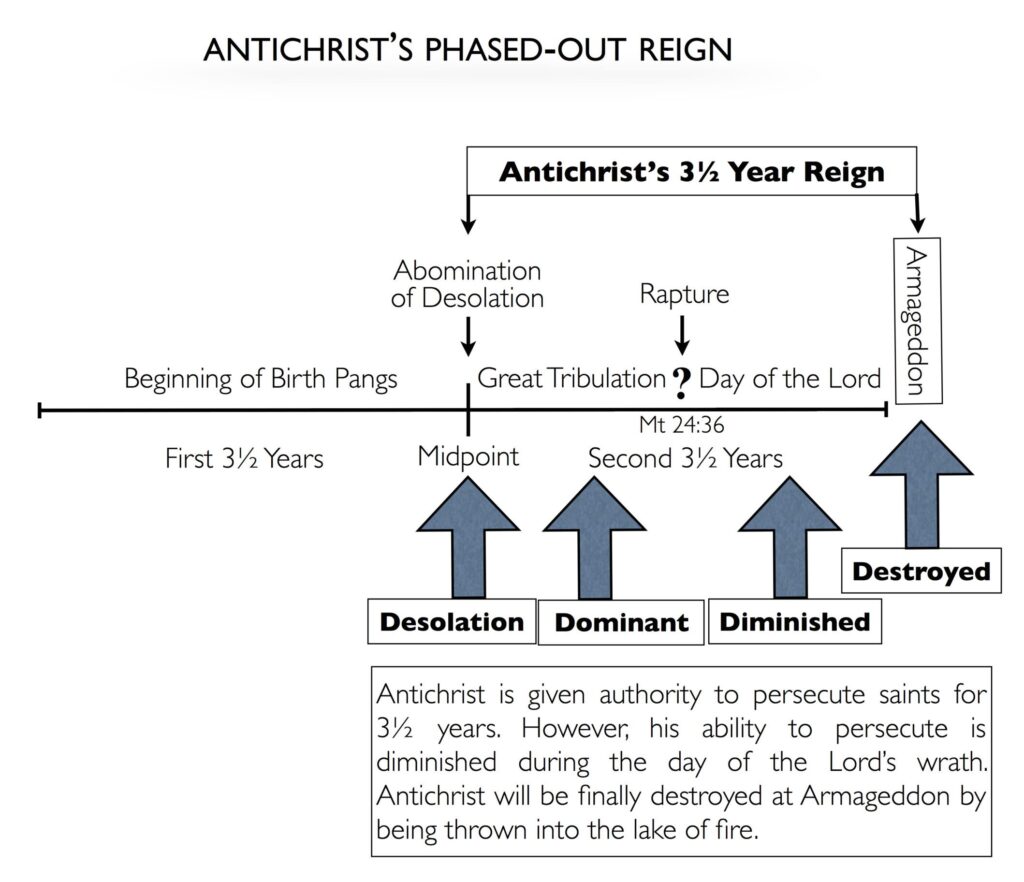Here is a snippet from the next issue of the magazine. If you are not a subscriber to it or you are not a Ministry Partner, be sure to sign up for either one so you will receive a print issue.
This question concerning the Antichrist’s authority has implications for one’s framework of eschatology. Here you go:
Does the Antichrist Possess Absolute Authority to Persecute the Church for 3 1/2 Years?
It is commonly believed that since Scripture says the Antichrist’s authority will last 3.5 years, the church must be on earth during this entire period. The main assumption built into this interpretation from Dan 7:25 and Rev 13:5–7 is that the Antichrist will be given absolute authority during the entire 3.5 period and therefore it is thought that the church must remain during this entire period in order to maintain this absolute authority. This is deeply mistaken. The following reasons demonstrate that the Antichrist will not have absolute authority during this period but only relative authority. In the book of Revelation, God is shown to be active in protecting and judging during the second half, something he could not do if the Antichrist possesses absolute authority.
First, a faithful remnant of Israel, “the woman,” (Rev 12:12–18) is protected by God from the beast and Satan during the 3.5 year period. This shows that while Antichrist has authority for 3.5 years, he does not have authority over everyone. God does not allow Antichrist’s activities to be expressed without strictures. It follows that if God will do this for a remnant of Israel, then there is no necessary principle that would prevent him from protecting the church for any, or part of, of the 3.5 years.
Second, the Antichrist during the 3.5 year period will be restrained from harming the Two Witnesses (Rev 11:1–12). If Antichrist’s authority was absolute then he should be able to kill the Two Witnesses at once. But God has limited the scope of who the Antichrist can harm. It bears repeating, since God will do this for his Two Witnesses for 3.5 years, it is not difficult to accept that he can easily cut short the Antichrist’s persecution against the church for a shorter period. Antichrist’s authority—and by extension, Satan’s authority—is relative, that is, restrained in the similar manner as God restrained Satan’s authority over Job and his family by setting his authority with parameters.
While God protects certain people during Antichrist’s period of authority, God also judges during part of Antichrist’s 3.5 year period of authority. When the great tribulation is cut short at some unknown point during the 3.5 year period, it will allow sufficient time for the trumpet judgments associated with the day of the Lord’s wrath to occur for the remaining period of the 70th week (e.g. the fifth trumpet is said to last five months according to Rev 9:5). When Jesus returns to judge, Antichrist’s authority will continue where he continues to operate his beast kingdom but from a diminished standpoint during the trumpet and bowl judgments, even attempting to marshal the armies of the world to attempt to defeat Christ in one last stand against him (see Rev 8–9, 15–15, 19). One further point that should not be overlooked is the seventh trumpet of God’s wrath is blown a few days after the 3.5 years ministry of the Two Witnesses (Rev 11:1–15). This demonstrates clearly that God’s eschatological wrath of the previous six trumpet judgments will occur before the 70th week is complete—and accordingly the great tribulation of the beast’s persecution against the church must be cut short before the completion of the 70th week.
For these reasons, it is flawed to think that the book of Revelation establishes the beast’s great tribulation against the church for the entire 3.5 years period. Rather, the great tribulation will be cut short with Jesus’s parousia and on that same day God’s wrath will begin to pour out on the wicked for the remaining part of the 3.5 years.



